Tanto en el diseño como en la técnica, el patchwork inglés y el americano son diferentes. Básicamente, se denomina patchwork inglés al paper piecing, método basado en plantillas de papel introducidas bajo las piezas que componen el top. En cambio, en América se desarrolló el sistema de unir las piezas cosiéndolas directamente una a una siguiendo una marca de lápiz o incluso sin marca.
Both in the design and in the technique, English and American patchwork are different. Basically, we call English patchwork to the paper piecing, a method based on paper templates inserted under the pieces which make up the top. On the other hand, in America was developed the system of joining the pieces by sewing them directly one by one following a pencil mark or even with no mark.
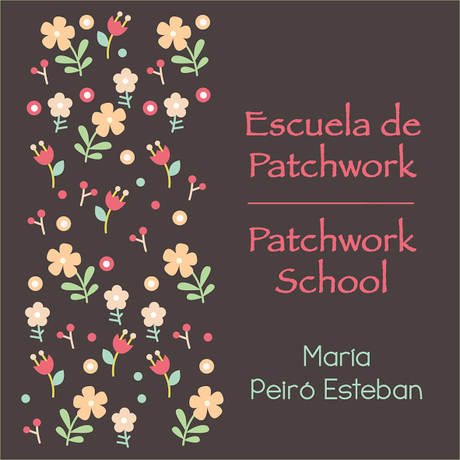
En cuanto al diseño del top, los quilts ingleses partían de una figura central o medallón, mientras que los americanos se creaban a partir de bloques que se repetían combinándolos de distintas formas. Se cree que las razones de este cambio son económicas: los colonos eran pobres, por lo que disponían de piezas de tela más pequeñas y menos espacio en los que coser (los bloques son más manejables).
As for the design of the top, the English quilts came from a central figure or medallion, whereas the Americans were created from blocks that were repeated combining them on different ways. The reason for this change is thought to be economic: the colonists were poor, so they had smaller pieces of fabric and less place where to sew (the blocks are easier to handle).
Por tanto, tenemos varias opciones de diseño:
Therefore, we have several options of design:
- Partir de un motivo central, como podría ser The Lone Star.
- To start from a central motif, as it might be The Lone Star.
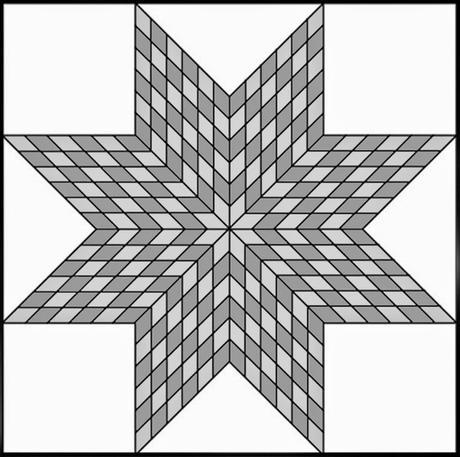
- Trabajar con bloques: colocados en horizontal o diagonal, con o sin tiras de unión, con o sin cuadrados o triángulos marco.
- To work with blocks: placed horizontally or diagonally, with or with no assembling strips, with or without setting squares or triangles.
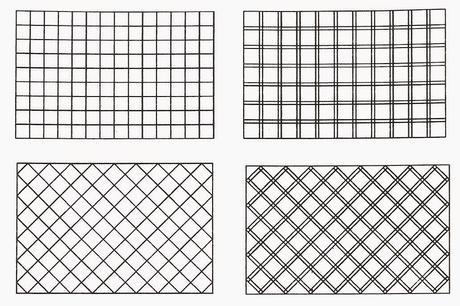
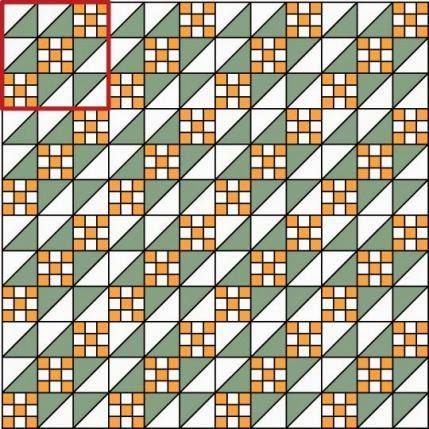
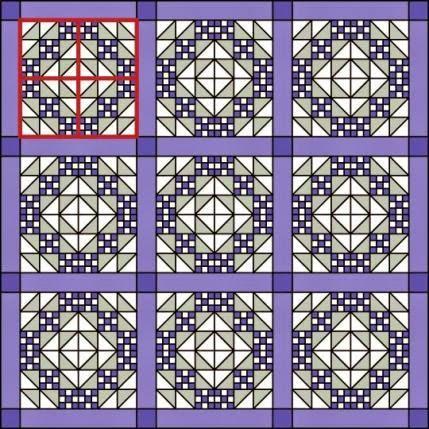
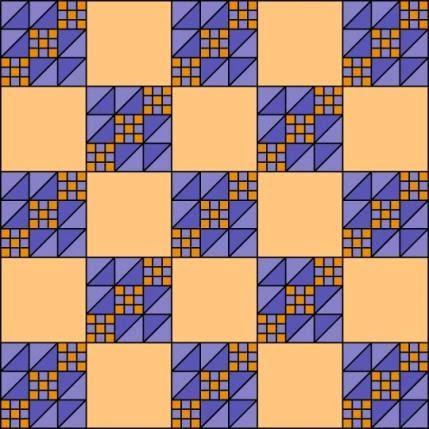 Bocetos de All People Quilt
Bocetos de All People Quilt
- En cuanto al ribete, el borde del top, podemos utilizar tiras de tela unidas en recto o en diagonal, bordes ondulados o bordes formados por bloques, unidos en horizontal o diagonal.
- As for the binding, the edge of the top, we can use straight or mitered borders, scalloped or pieced borders with straight-set blocks or diagonally set blocks.
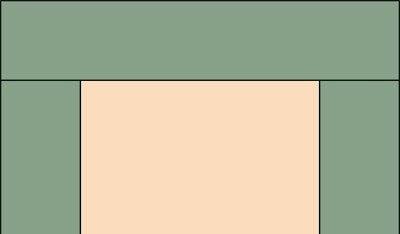
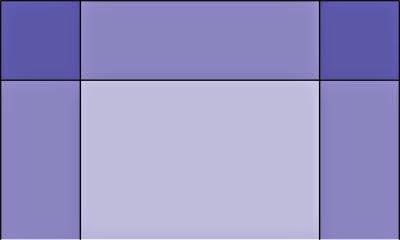
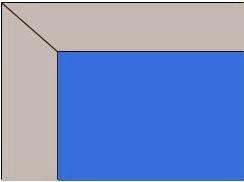
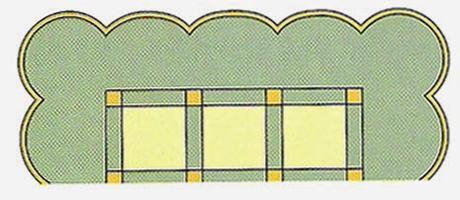
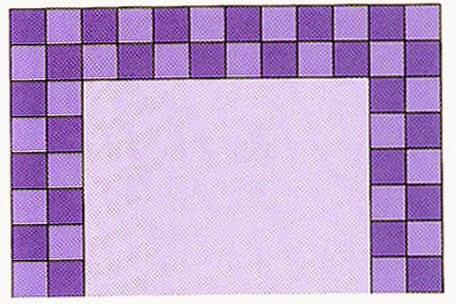
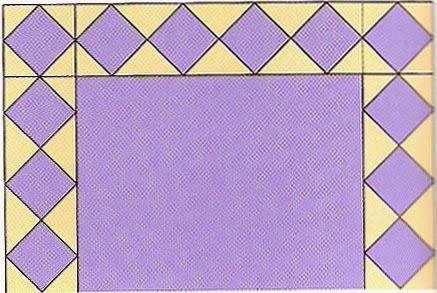
Como ya dijimos, conviene proyectar nuestro diseño gráficamente, a escala, para definir la dimensión del quilt y las proporciones de sus partes. Y colorear el boceto para realizar las pruebas de color.
As we already said, it is advisable to project our design graphically, to scale, to define the dimension of the quilt and the proportions of its parts. And to color the sketch to test colors.

